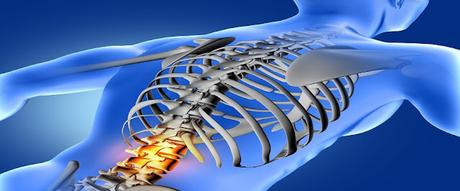
Your spine is more than just a stack of bones. It’s the
central pillar that supports your entire body, enabling movement and protecting
your nervous system. When it comes to overall health, a healthy spine plays an
essential role in everything from mobility to mood. Yet many people overlook
spinal care until issues arise.
Maintaining a healthy spine isn’t just about avoiding pain; it’s about
enhancing your quality of life. Whether you’re an athlete, desk-bound
professional, or busy parent, embracing good spinal habits can make all the
difference. Let’s explore why spinal health matters and how you can keep yours
in tip-top shape!
Introduction to the Importance of Spinal Health
Spinal
health is crucial for overall well-being. Your spine acts as the body’s
main support structure, allowing you to stand tall and move freely. A healthy
spine contributes significantly to your posture, which in turn affects how you
feel throughout the day.
Beyond mobility, a strong spine protects vital nerves that communicate messages
between your brain and body. This communication network influences everything
from muscle function to organ health.
Moreover, spinal issues can lead to discomfort that impacts daily activities.
Chronic pain may limit movement or even disrupt sleep patterns.
By prioritizing spinal care, you not only enhance physical strength but also
improve mental clarity and emotional stability. When your spine functions
optimally, it paves the way for a more vibrant life filled with activity and
joy.
Understanding the Structure and Function of the Spine
The spine is a remarkable structure that supports and
protects the central nervous system. It consists of 33 vertebrae, which are
categorized into different regions: cervical, thoracic, lumbar, sacral, and
coccygeal. Each section has its own unique role in providing flexibility and
stability to the body.
Discs made of cartilage sit between these vertebrae. They act as shock
absorbers during movement. This cushioning helps maintain proper alignment and
reduces impact on the bones.
Nerves branch out from the spinal cord through openings in each vertebra. These
nerves transmit signals between the brain and various parts of your body. This
intricate communication network allows for coordinated movements and sensory
perceptions.
Maintaining this complex structure is crucial for overall spine health.
Any disruption can lead to pain or limited mobility, emphasizing why
understanding spinal anatomy matters greatly for everyone’s well-being.
Also Read: - Tension Type Headache
Common Causes of Spinal Issues
Spinal issues can arise from various factors, often
intertwined with our daily habits. Poor posture is a significant contributor.
Slouching in front of screens or hunching while working can put excessive
strain on the spine.
Injuries also play a critical role. Accidents, falls, or sports-related impacts
may lead to misalignments or herniated discs that cause lasting discomfort.
Another common culprit is sedentary behavior. Long hours spent sitting without
breaks weaken core muscles and diminish spinal support.
Weight gain adds extra pressure on the spine as well. Carrying excess weight
increases stress not only on the back but throughout your entire body.
Additionally, age cannot be ignored. As we age, our spinal discs lose hydration
and elasticity, making them more susceptible to degeneration and pain over
time.
Lifestyle choices like smoking affect blood flow to spinal tissues too, further
complicating health outcomes related to the spine.
The Benefits of Maintaining a Healthy Spine
Maintaining a healthy
spine is crucial for overall well-being. A strong spine supports your
body’s structure, allowing you to stand tall and move freely.
Good spinal health enhances posture, which can significantly reduce discomfort
in the neck and back. Improved alignment leads to less strain on muscles and
ligaments, promoting better mobility.
Additionally, a healthy spine plays an essential role in nerve function. The
spine houses the spinal cord, which transmits signals between your brain and
body. Proper alignment ensures these messages are delivered efficiently.
Beyond physical benefits, maintaining a healthy spine can also boost mental
clarity and mood. When you're free from pain or discomfort, it’s easier to
focus on daily tasks and enjoy life fully.
Investing time in spinal care can also enhance athletic performance by
increasing flexibility and strength while minimizing injury risk during
activities.
Also Read: - How To Avoid Sleep While Studying
10 Essential Tips for Keeping Your Spine Healthy
1. To maintain a healthy spine, posture is key. Sit and stand tall, keeping your shoulders back and aligned over your hips.
2. Incorporate regular exercise into your routine. Strengthening core muscles supports spinal stability.
3. Pay attention to ergonomics at work or home. A well-designed workstation can reduce strain on your back.
4. Stay hydrated; it helps keep the discs in your spine functioning properly. Aim for plenty of water throughout the day.
5. Stretch often to improve flexibility. Simple stretches can alleviate tension and increase mobility.
6. Mindful lifting techniques matter too. Bend at the knees, not at the waist, when picking up heavy items.
7. Consider practicing yoga or Pilates. These activities enhance balance while promoting overall spinal health.
8. Maintain a healthy weight as excess pounds add stress to the spine’s structure.
9. Regular check-ups with a healthcare professional ensure any issues are addressed promptly.
10. Prioritize sleep quality by choosing supportive mattresses and pillows that align with your neck and spine.
Also Read:- Tension Type Headaches: Causes, Symptoms, and Treatments
Conclusion
The importance of maintaining a healthy spine cannot be
overstated. Your spine is the backbone of your body—literally and figuratively.
It supports your posture, protects vital nerves, and enables movement. A
well-functioning spine contributes significantly to overall health and quality
of life.
Understanding how your spine works can help you appreciate its role in daily
activities. The human spine consists of 33 vertebrae stacked together,
cushioned by intervertebral discs that act as shock absorbers. This intricate
structure allows for flexibility while providing stability.
Many factors contribute to spinal issues, such as poor posture, lack of
exercise, injuries, or age-related changes. These problems can lead to
discomfort or even chronic pain if not addressed properly.
Maintaining a healthy spine brings numerous benefits beyond just avoiding pain.
Improved mobility enhances physical activity levels and boosts mood through
increased endorphins. Additionally, good spinal health supports optimal organ
function due to proper alignment. To keep your spine strong and flexible,
prioritize good posture, exercise regularly, stay hydrated, and get enough
sleep. If you experience spinal pain or discomfort, consult a healthcare
professional to identify the cause.

